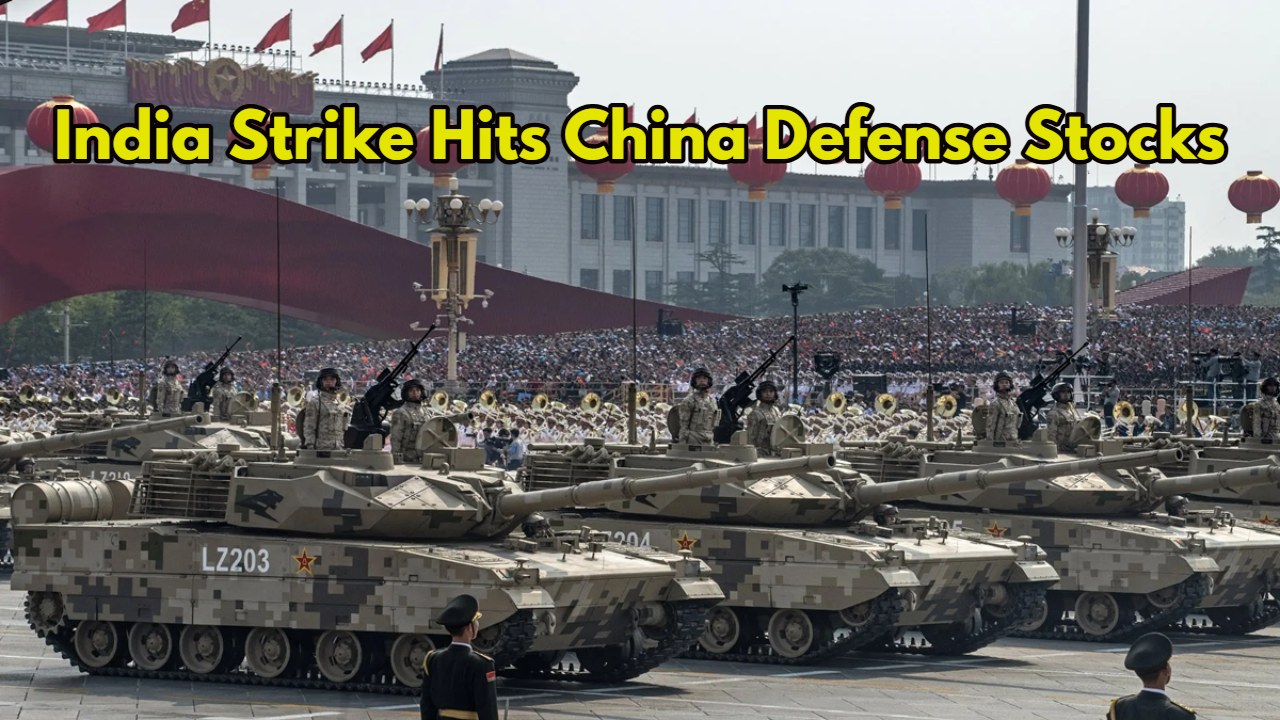China’s military industry took a hit this week, and the perpetrator is rather unexpected—Indian strikes exposed the vulnerability of China-made weapons in a recent India-Pakistan conflict. What began as a routine military confrontation has now shaken investor confidence in China’s top defense companies.
Operation Sindoor: Choose the Winning Game
It all began during Operation Sindoor, a bold and sharp Indian military reaction. Here, Pakistan also relied too much on Chinese weapons made available to them. The rest of the world was observing with bated breath Pakistani forces hitting with Chinese fighter aircraft and missiles.
But it wasn’t their fortune. India retaliated with power, and its defense system downed some of these so-called state-of-the-art weapons—in this case, the PL-15 missile.
That day sent the world a clear and loud message: Chinese arms may not be as powerful as they boast.
Investor Confidence Gets Damaged
Immediately following the India-Pakistan cease-fire, the Chinese market responded violently. Defense shares on Tuesday began plummeting precipitously. The Hang Seng China A Aerospace and Defense Index fell 3% in a single day. But the shock was at individual companies.
Shares of AVIC Chengdu, the manufacturer of Pakistan’s JF-17 Thunder and J-10C aircraft, dropped more than 9%. The manufacturer of the PL-15 missile, which was unsuccessful in combat, Zhuzhou Hongda, saw a decline of about 6.4%. These numbers reflect something deeper—investors are losing trust.
Weapons That Didn’t Deliver
The breakdown wasn’t accidental. It occurred shortly after Pakistan’s own administration announced that it had employed China’s J-10C fighter jets in the conflict. When Indian air defense downed missiles such as the PL-15, it wasn’t merely a military victory—it revealed vulnerabilities in Chinese defense technology. That fueled worldwide headlines and instilled hard skepticism among investors.
China: Pakistan’s Top Arms Supplier
China supplied 81% of Pakistan’s arms between 2020 and 2024, SIPRI figures show. Far behind were the Netherlands and Turkey. In the fight, even Pakistan made use of Turkish drones—but everyone focused on China’s underperforming jets and missiles.
The Fallout Continues
Even more Chinese defense firms posted losses. AVIC Aerospace, which builds military aircraft and helicopters, saw its Hong Kong shares drop over 2%. The impact of the India-Pakistan clash has gone far beyond borders—it’s now echoing across China’s financial markets.
